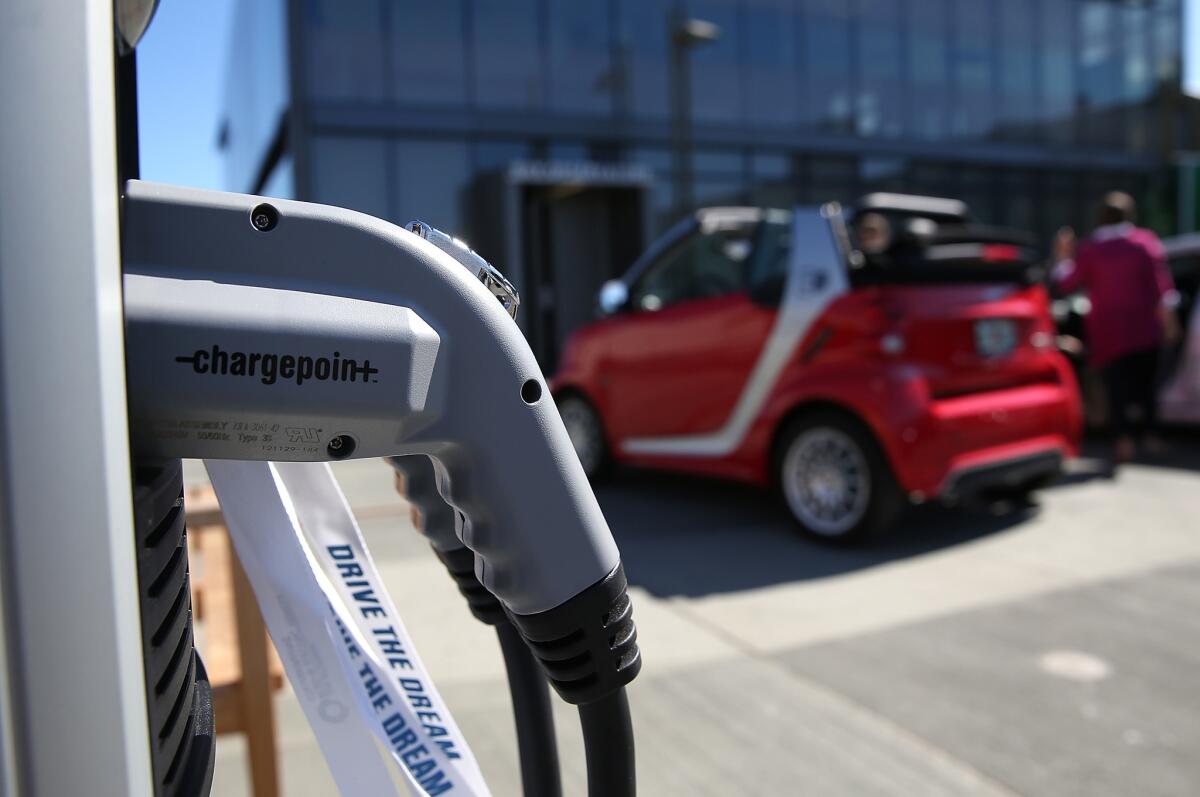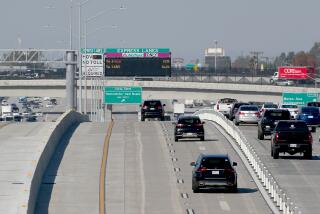State regulators approve proposal for 7,500 new vehicle charging stations

State regulators on Thursday approved the nation’s largest expansion of vehicle charging stations through a $130-million project that will be developed and run by Pacific Gas & Electric Co.
The PG&E project will deploy 7,500 vehicle charging stations throughout Northern California, with locations at businesses as well as multi-unit dwellings and in disadvantaged communities.
The five-member California Public Utilities Commission voted unanimously in favor of the program, which follows similar projects this year by Southern California Edison and San Diego Gas & Electric.
In total, the three shareholder-owned utilities are set to bring 12,500 vehicle charging stations online, the nation’s largest deployment of the units.
Commissioners sought to balance the interests of the publicly traded utility companies and the privately owned vehicle charging station providers. The final decision doesn’t give PG&E total control. For example, the utility’s ownership was limited to the system’s supporting infrastructure and 35% of the charging stations, all at multi-unit dwellings and in disadvantaged communities.
“This is a tough area to work in,” said Michael Picker, the commission’s president. “It’s essentially an unregulated industry, the automotive industry, that ties into the electric industry.”
Added Commissioner Carla Peterman: “Our decision today strikes a good balance between consumer benefits and the promotion of competition in the electric vehicle infrastructure marketplace.”
PG&E hailed the commission’s decision as an important step in helping to “jump-start the EV market.”
“Expanding the use of electric vehicles is essential to California’s success in climate and clean-air goals,” said Ari Vanrenen, a PG&E spokeswoman. “A robust charging infrastructure is a critical component to make that happen.”
But critics have argued that shareholder-owned utilities shouldn’t be allowed to tap their customers for a business venture that investors would cover, given the state’s push to electrify the vehicle sector as a way to curb pollution.
“PG&E’s vague claims about the benefits to customers are insufficient justification for the costs,” said Mark Toney, executive director of the Utility Reform Network, a consumer advocacy organization. “PG&E should not be spending ratepayers’ hard earned dollars to finance a risky business experiment that won’t improve anything for most consumers.”
But with Gov. Jerry Brown’s mandate to put 1.5 million clean energy cars on the road by 2025, supporters of the utilities’ charging station plan declared the commission’s decision as a win for the environment and those with low incomes.
“This represents a crucial addition to California’s groundbreaking efforts to make electric vehicles affordable and accessible to communities most impacted by poverty and pollution,” said Joel Espino, legal counsel for environmental equity at the Greenlining Institute.
In addition to the state’s goal of putting more clean energy vehicles on the road, California has a mandate to produce 50% of its electricity from clean energy by 2030. About 40% of the state’s greenhouse gas emissions comes from the transportation sector.
“This program will help California build healthier communities and sets a strong example for utilities across the country,” said Joe Halso, a lawyer for the Sierra Club.
For more energy news, follow Ivan Penn on Twitter: @ivanlpenn







